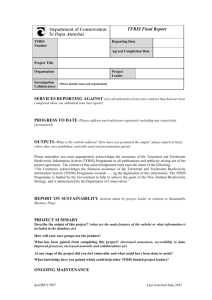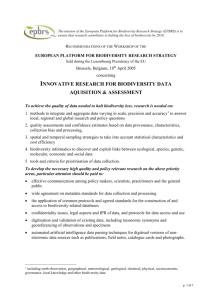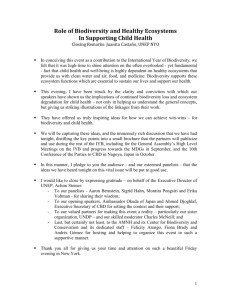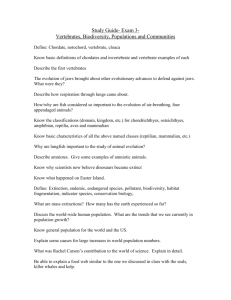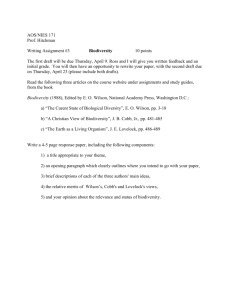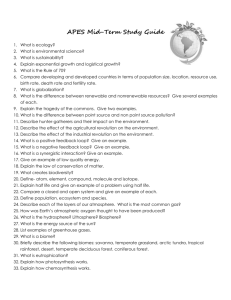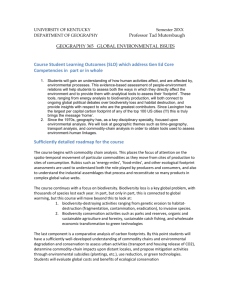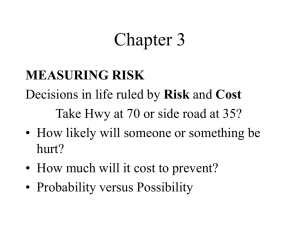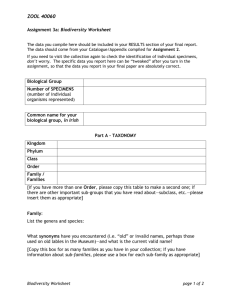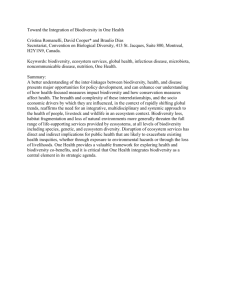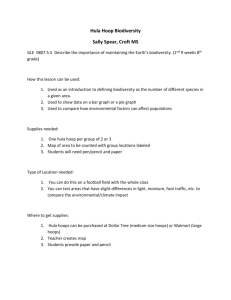Environmental Science
advertisement
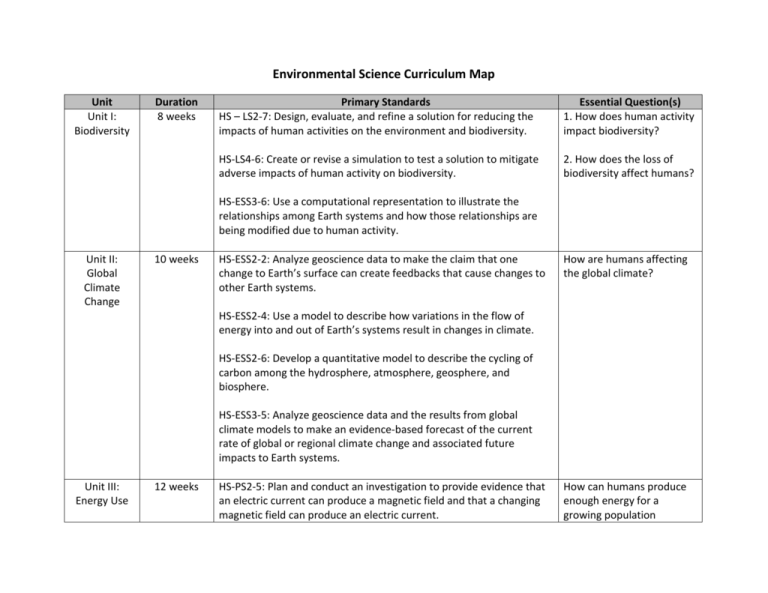
Environmental Science Curriculum Map Unit Unit I: Biodiversity Duration 8 weeks Primary Standards HS – LS2-7: Design, evaluate, and refine a solution for reducing the impacts of human activities on the environment and biodiversity. Essential Question(s) 1. How does human activity impact biodiversity? HS-LS4-6: Create or revise a simulation to test a solution to mitigate adverse impacts of human activity on biodiversity. 2. How does the loss of biodiversity affect humans? HS-ESS3-6: Use a computational representation to illustrate the relationships among Earth systems and how those relationships are being modified due to human activity. Unit II: Global Climate Change 10 weeks HS-ESS2-2: Analyze geoscience data to make the claim that one change to Earth’s surface can create feedbacks that cause changes to other Earth systems. How are humans affecting the global climate? HS-ESS2-4: Use a model to describe how variations in the flow of energy into and out of Earth’s systems result in changes in climate. HS-ESS2-6: Develop a quantitative model to describe the cycling of carbon among the hydrosphere, atmosphere, geosphere, and biosphere. HS-ESS3-5: Analyze geoscience data and the results from global climate models to make an evidence-based forecast of the current rate of global or regional climate change and associated future impacts to Earth systems. Unit III: Energy Use 12 weeks HS-PS2-5: Plan and conduct an investigation to provide evidence that an electric current can produce a magnetic field and that a changing magnetic field can produce an electric current. How can humans produce enough energy for a growing population sustainably? HS-PS3-3: Design, build, and refine a device that works within given constraints to convert one form of energy into another form of energy. HS-ESS3-2a: Evaluate competing design solutions for developing, managing, and utilizing energy based on cost - benefit ratios. Unit IV: A Sustainable Society 10 weeks HS-ESS3-1: Construct an explanation based on evidence for how the availability of natural resources, occurrence of natural hazards, and changes in climate have influenced human activity. HS-ESS3-2b: Evaluate competing design solutions for developing, managing mineral resources based on cost - benefit ratios. HS-ESS3-4: Evaluate or refine a technological solution that reduces impacts of human activities on natural systems. How can we as a society meet the needs of the present generation without compromising the ability of future generations to meet their own needs?

